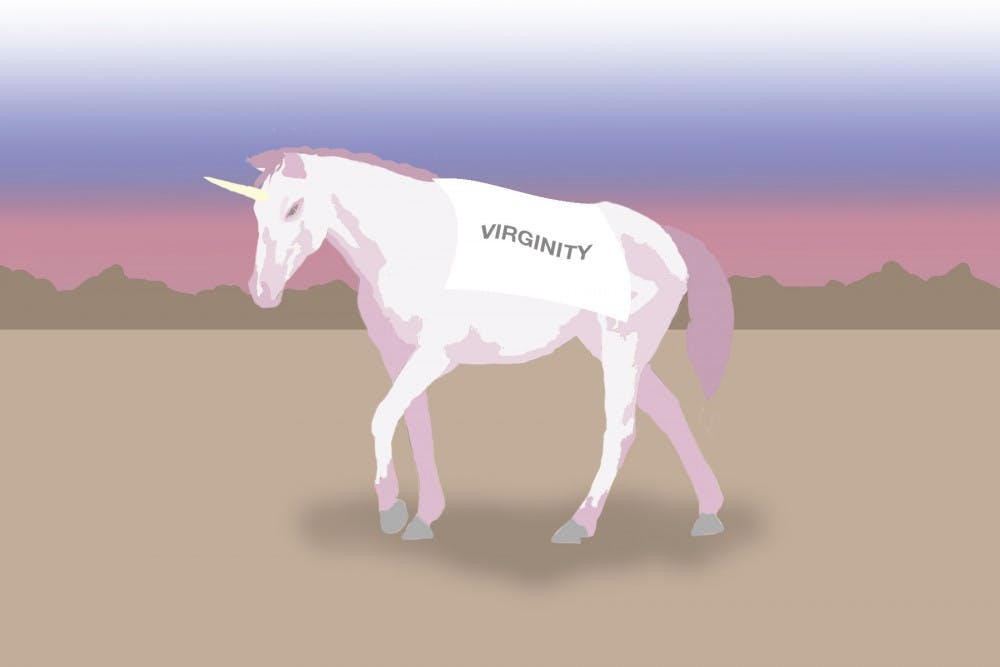Virginity has always been a big deal. Countless cultures have been obsessed with the concept from their beginnings.
Yet, many people fail to consider the concept of virginity from different perspectives.
The way we view virginity as a culture is extremely detrimental to the health of our sexualities, especially when you consider that technically, it is not even real.
Virginity is conceptual, it is a social construction. When we have sex for the first time we do not actually lose anything. It does not change our identity, it is not life-altering and it does not affect our worth. It is simply a new experience.
virginity is a social construct and "losing it" doesn't change anything about you pass it on
— plant dad (@capnotic) February 2, 2017
While it is perfectly healthy to want to wait until you are in a committed relationship or married before you have sex, shaming others for not choosing the same path is hurtful.
This is exactly what our cultural view of virginity does. It praises those who remain “pure,” and shames those who choose to have sex before marriage.
“Just because something is a social construction doesn’t mean that is doesn’t carry a lot of emotional weight for people,” Dr. Breanne Fahs, Ph.D. in clinical psychology and women's studies and associate professor at ASU, said. “However, purity is never a good thing. Whenever that word shows up we should get nervous.”
The idea of purity is used as a means to control and manipulate us into following social norms, especially gender norms. It reinforces the idea that women lack sexuality. Virginity is treated as a commodity that can be lost. So according to this concept, when a woman has sex, she loses her value.
“Who gets saddled with the discourse of purity? Women do,” Fahs said. “When women are trying to feel like they’re negotiating sexual purity, that is never good."
However, the construction of this ideal does not just hurt women, it’s destructive to men’s sexualities as well. Men are widely shamed for remaining virgins, as it’s loss is a sign of their masculinity and manhood. It’s a “rite of passage,” an exclusive club one can only join by engaging in one of the most intimate human experiences.
“It (virginity) is a new thing that someone is doing, but we mark it as a loss,” Fahs said. “There's hardly any other experience like it that we frame in that way. You can’t definitively say that virginity is useful or useless, but it definitely points to strong gender dynamics that we want to be careful about.”
Virginity is also exclusively heteronormative. It focuses solely on straight male/female penetrative sex. As a result, it invalidates any sex that does not fit this strict definition, and excludes LGBTQ relationships and sexualities.
The concept of virginity makes it hard to make our own decisions about sex. It attaches guilt and shame to sexuality, and makes it seem like a scary experience that transforms you into completely different person.
As a result people often feel overwhelmed and pressured when deciding if they are ready to have sex, and guilty after the fact.
By buying into the idea of purity, we effectively begin to dismantle the possibility of having a healthy sex life. Many people report feeling dirty after sex, even if they are married. They did everything society would perceive as right, but because they were taught that virginity is such a big deal, losing it is devastating.
If we begin to reframe the idea of virginity, our culture will be able to foster much healthier ideas about sexuality. Everyone should be free to make their own decisions about sex without being held to some gross and damaging social construct.
Reach the columnist at sljorda4@asu.edu or follow @skyjordan4 on Twitter.
Editor’s note: The opinions presented in this column are the author’s and do not imply any endorsement from The State Press or its editors.
Want to join the conversation? Send an email to opiniondesk.statepress@gmail.com. Keep letters under 300 words and be sure to include your university affiliation. Anonymity will not be granted.
Like The State Press on Facebook and follow @statepress on Twitter.




